Horticulture 中的 Kenya 事件

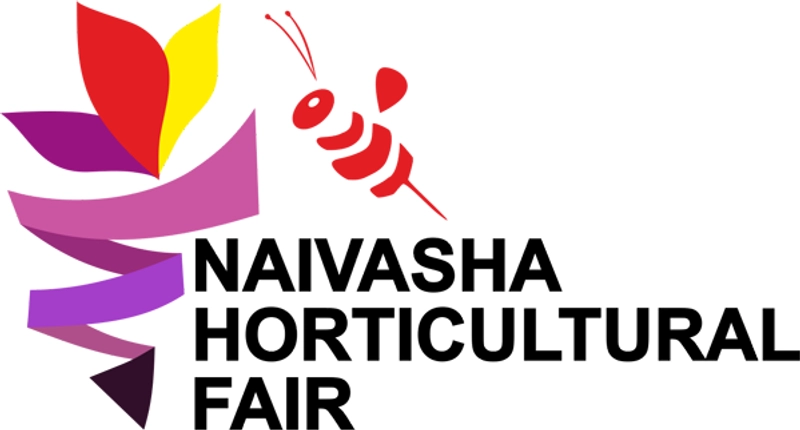
Naivasha Horticultural Fair
Naivasha Horticultural Fair: Africa’s Premier Platform for Growth and Innovation in Agriculture
The Naivasha Horticultural Fair stands proudly as Africa’s largest and most dynamic horticultural trade event. Located in the picturesque town of Naivasha, Kenya, this fair has steadily grown in prominence, attracting a diverse crowd of visitors from Europe, Africa, and beyond. It is widely regarded as a must-attend event for anyone involved in horticulture and the broader agricultural sector.
A Vibrant Showcase of Africa’s Agricultural Diversity
The Naivasha Horticultural Fair is unique in its wide-ranging representation of agricultural sectors. It doesn’t just focus on horticulture but also highlights floriculture, coffee, tea, maize, and arable farming. This diversity makes it a comprehensive platform that appeals to a broad spectrum of growers, agribusinesses, and policymakers.
Key sectors showcased include:
Horticulture: Innovations in vegetable and fruit production, post-harvest handling, and irrigation
Floriculture: Latest trends in cut flowers, propagation techniques, and export strategies
Coffee and Tea: Sustainable cultivation methods, processing technologies, and market access solutions
Maize and Arable Farming: Advances in seed technology, pest management, and mechanization
By bringing these varied sectors under one roof, the fair fosters cross-sector learning and collaboration, driving agricultural innovation across the continent.
Connecting Industry Leaders, Policymakers, and Growers
One of the fair’s most significant strengths is its ability to unite a broad array of stakeholders. Growers—from small-scale farmers to large commercial enterprises—come together with industry leaders, policymakers, technology providers, and exporters.
The fair provides opportunities to:
Explore cutting-edge technologies: Visitors gain firsthand exposure to modern equipment, smart irrigation systems, and climate-resilient crop varieties.
Gain expert insights: A series of seminars, workshops, and panel discussions deliver valuable knowledge on market trends, sustainability, and best practices.
Build meaningful partnerships: Business matchmaking sessions and networking events connect buyers, suppliers, and investors to foster long-term collaborations.
This integration supports the entire horticultural ecosystem and encourages growth at all levels.
Empowering Farmers and Businesses to Grow
Whether you’re a commercial grower aiming to expand your operations or a smallholder seeking to increase productivity, the Naivasha Horticultural Fair offers something for everyone. The event’s inclusive nature ensures that all participants can benefit from the wealth of knowledge, resources, and opportunities available.
Benefits of attending include:
Access to innovative agricultural products and services
Opportunities to connect with regional and international buyers
Insights into export requirements and global market trends
Exposure to sustainable farming practices and climate-smart agriculture
Platforms to showcase new products and brands
Attendees leave equipped with practical tools and connections that help elevate their agricultural journey.
Why the Naivasha Horticultural Fair Matters for Africa’s Future
As Africa’s agricultural sector continues to grow and modernize, events like the Naivasha Horticultural Fair play a crucial role in shaping the continent’s future food security and economic development. By facilitating the exchange of ideas, technologies, and market information, the fair strengthens Africa’s position in global agricultural trade.
The event’s ongoing success also underscores the growing importance of sustainable and innovative agricultural practices, which are essential in tackling challenges such as climate change, pest outbreaks, and market volatility.
A Must-Attend Event for the Horticultural Community
The Naivasha Horticultural Fair remains a vibrant, forward-thinking platform that inspires innovation, collaboration, and growth within Africa’s agricultural landscape. With its unmatched diversity, expert knowledge sharing, and networking opportunities, it empowers stakeholders to meet the demands of today’s agricultural challenges and seize new opportunities.
For anyone connected to horticulture, floriculture, or the wider farming sectors, attending this event is a vital step toward building a sustainable and prosperous agricultural future.

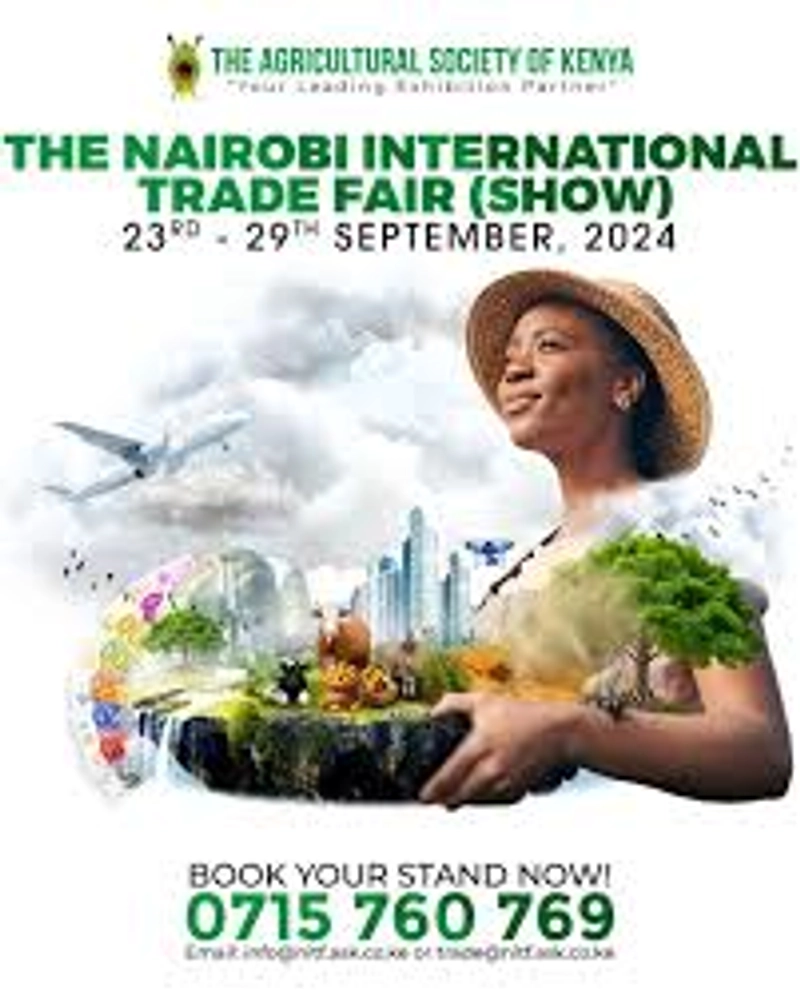
Nairobi International Trade Fair (NITF)
Nairobi International Trade Fair: Advancing Climate-Smart Agriculture for a Sustainable Future
Held in the vibrant heart of Kenya’s capital, the Nairobi International Trade Fair has evolved into one of East Africa’s most influential agricultural expos. Organized annually by the Agricultural Society of Kenya (ASK), the event goes far beyond showcasing products—it is a crucial gathering point for innovation, education, and partnership across the agricultural value chain.
Under the theme "Promoting Climate Smart Agriculture and Trade Initiatives for Sustainable Economic Growth", the upcoming edition reaffirms the fair’s commitment to sustainability, resilience, and economic development. With over 800 exhibitors and a projected 600,000 visitors, this event is not only a marketplace but a strategic hub where global trends meet local expertise.
Why the Nairobi International Trade Fair Matters More Than Ever
As global agriculture grapples with the twin challenges of climate change and food insecurity, the Nairobi International Trade Fair provides a powerful platform to drive practical, scalable solutions. This year’s emphasis on climate-smart agriculture signals a shift toward integrated, sustainable farming systems that balance productivity with ecological responsibility.
The fair serves key purposes for various sectors:
Showcasing innovations in agricultural technology, machinery, and practices
Creating space for trade negotiations and investment opportunities
Encouraging policy dialogue between government, private sector, and civil society
Educating farmers and agribusinesses on climate adaptation strategies
Facilitating youth participation in modern, tech-driven agriculture
By bringing together such a wide range of stakeholders, the event becomes more than an expo—it becomes a catalyst for transformation in regional agriculture.
An Unparalleled Platform for Networking and Collaboration
With an audience size approaching 600,000, the Nairobi International Trade Fair offers unmatched access to diverse professionals across the agriculture, manufacturing, trade, finance, and public sectors. For exhibitors, it is a unique opportunity to present innovations to a high-traffic, targeted audience.
Key groups in attendance:
Smallholder and commercial farmers
Agritech startups and innovators
Exporters and importers of agricultural goods
Government bodies and regulatory agencies
International development partners and NGOs
Agro-financing institutions
Research institutions and universities
This broad participation enables cross-sectoral dialogue and long-term partnerships, particularly around climate-smart investments and technology dissemination.
Climate-Smart Agriculture in Focus
One of the fair’s major objectives this year is to accelerate the adoption of climate-smart agriculture (CSA). This concept combines productivity, adaptation, and mitigation, helping farmers increase output while protecting the environment.
Climate-smart innovations highlighted at the fair include:
Drought-resistant seed varieties and precision irrigation systems
Soil health restoration through regenerative farming
Digital platforms for weather forecasting and market access
Renewable energy solutions for post-harvest processing
Water harvesting technologies for dryland agriculture
Workshops and exhibitions will also explore policy frameworks, subsidy programs, and training modules to support CSA at scale.
Trade Initiatives: Driving Economic Growth Through Agriculture
As a region heavily dependent on agriculture for livelihoods and GDP, Kenya’s economic resilience is closely tied to its agricultural trade landscape. The Nairobi International Trade Fair serves as a springboard for B2B and B2G engagements, allowing participants to identify new market opportunities, form joint ventures, and showcase export-ready products.
Benefits for participants in the trade sector:
Exposure to international buyers and distributors
Opportunities to demonstrate certifications and standards compliance
Learning sessions on trade agreements like AfCFTA and COMESA
Networking with logistics and warehousing service providers
Investment dialogues with banks and development agencies
This year’s theme encourages stakeholders to recognize climate-smart trade not just as ethical, but as profitable and future-proof.
Educational Activities and Youth Engagement
The fair places a strong emphasis on knowledge transfer and capacity building, particularly targeting youth and women, who are often underrepresented in the sector. Through demonstrations, field school showcases, and agri-bootcamps, the fair ensures the next generation of farmers and agribusiness professionals are equipped with the tools and knowledge to lead.
Educational highlights include:
Seminars on smart farming techniques
Career expos for agri-related professions
Live demos of smart tech tools and mechanized equipment
Farmer competitions and exhibitions
Collaborative challenges for student innovators
These activities reflect the broader goal of inclusive agricultural development and ensure the fair’s impact extends well beyond the event dates.
Diverse Exhibitions Covering the Full Agricultural Spectrum
Spanning crop production, livestock, aquaculture, agribusiness services, and input supplies, the Nairobi International Trade Fair offers a comprehensive snapshot of the agricultural sector. From large machinery to bio-organic fertilizers, the diversity of exhibitions reflects both the traditional roots and modern aspirations of Kenyan agriculture.
Some of the key sectors represented include:
Agri-inputs (seeds, fertilizers, crop protection)
Agri-machinery and mechanization tools
Livestock breeding and veterinary services
Food processing and value addition
Logistics, cold chain, and post-harvest solutions
ICT for agriculture and digital platforms
This wide scope encourages both local and international investment, while also enabling smallholder farmers to access tools that can scale their operations sustainably.
A Landmark Event Shaping the Future of African Agriculture
The Nairobi International Trade Fair stands as a testament to Kenya’s agricultural resilience, innovation, and strategic importance in the African economy. By promoting climate-smart agriculture and trade initiatives, it positions itself as more than just a fair—it becomes a regional policy influencer, knowledge hub, and economic driver.
In a time when global agriculture is undergoing seismic change, this event provides clarity, opportunity, and connection. Whether you are a farmer seeking better practices, a tech innovator introducing a new solution, or a policymaker crafting the future of food, the Nairobi International Trade Fair is where your journey continues.

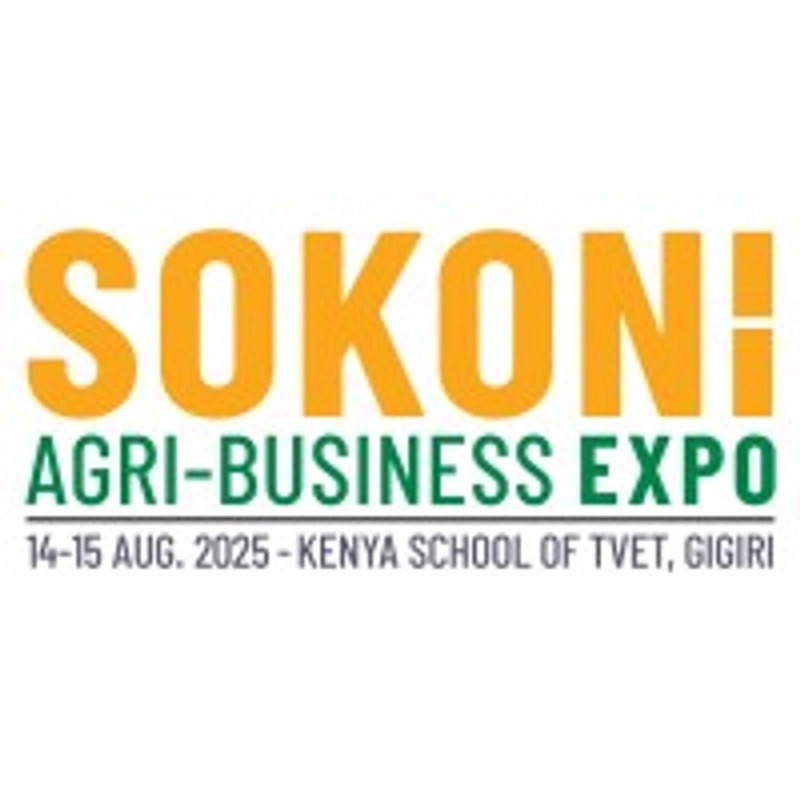
Sokoni Agri-Business Expo
Sokoni Agri-Business Expo: Kenya’s Premier Showcase for Value-Added Farm Products and Food Innovations
Now entering its second edition, the Sokoni Agri-Business Expo has quickly established itself as Kenya’s leading event for showcasing innovation in agriculture and food production. This vibrant exhibition brings together stakeholders from across the agricultural value chain to celebrate creativity, sustainability, and business growth within Kenya’s agribusiness sector.
Celebrating Innovation in Value-Added Agriculture and Food Products
The core of the Sokoni Agri-Business Expo lies in its dynamic exhibition of value-added farm products and food innovations. Exhibitors from diverse backgrounds present a wide array of offerings including:
Organic produce cultivated with sustainable practices
Fresh and processed food products crafted for modern consumer demands
Packaging innovations designed to enhance product shelf life and appeal
Agricultural machinery and technology solutions aimed at increasing productivity
Financial and cooperative services that support smallholder farmers and agribusiness entrepreneurs
Through these displays, the Expo acts as a powerful platform for introducing groundbreaking ideas and solutions that elevate Kenya’s agricultural industry.
A Dual-Zone Approach: Exhibition and B2B Networking
The Sokoni Agri-Business Expo is thoughtfully designed with two primary zones to maximize impact and engagement:
Exhibition Zone – Here, visitors and buyers explore a rich variety of products, from fresh farm items to value-added goods ready for retail shelves. The exhibition encourages discovery, tasting, and direct shopping experiences that connect consumers with producers.
B2B Networking Zone – This area facilitates meaningful business meetings and lead generation opportunities, enabling exhibitors to pitch their products directly to major buyers, including supermarket representatives and distributors.
This dual approach fosters not only brand visibility but also solid business growth and market expansion.
Driving Growth Through Strategic Engagement and Market Access
One of the standout features of the Expo is its commitment to connecting businesses with key market players. By providing a space for targeted B2B meetings, the event helps agri-businesses:
Build relationships with large-scale buyers and retailers
Gain access to supermarket shelf space and distribution networks
Explore partnerships with financial institutions and cooperatives
Exchange ideas and knowledge with peers and industry leaders
These opportunities enable participating businesses to scale up, innovate, and respond effectively to market demands.
An Inclusive Platform for All Stakeholders
The Sokoni Agri-Business Expo welcomes a wide spectrum of participants—from producers and processors to financial service providers and technology innovators. Visitors can expect to find:
Farmers and cooperatives showcasing their products
Food processors offering both traditional and modern value-added goods
Suppliers of packaging and agricultural technologies
Representatives from banks and financing organizations supporting agribusiness
Consumers eager to discover, taste, and purchase quality products tailored for contemporary lifestyles
This inclusivity ensures a holistic approach to advancing Kenya’s agricultural and food sectors.
Shaping the Future of Agribusiness in Kenya
As it moves into its second successful edition, the Sokoni Agri-Business Expo stands as a beacon of innovation and opportunity in Kenya’s agribusiness landscape. By bridging the gap between producers, buyers, and service providers, the Expo plays a vital role in driving sustainable growth and transforming agricultural value chains.
For businesses looking to expand their reach and consumers eager to experience the best of Kenya’s farm-to-table products, the Sokoni Agri-Business Expo remains an essential event that celebrates the creativity and potential of the nation’s agricultural sector.

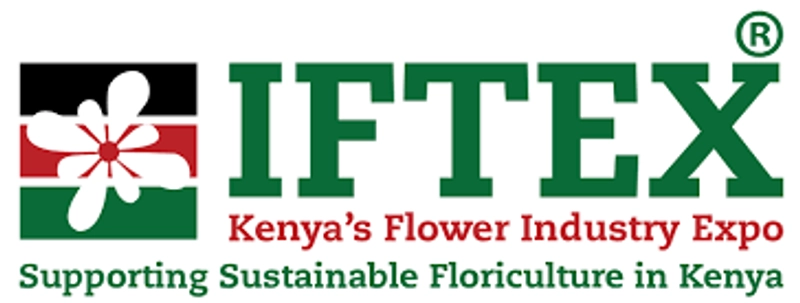
IFTEX Expo Kenya
肯尼亚IFTEX博览会是两年一次的重要活动,汇集了来自全球花卉行业的专业人士,为他们提供了向国际买家展示产品和服务的难得机会。该活动在内罗毕举行,聚焦肯尼亚快速增长的花卉业,该行业已成为世界舞台上的主要参与者。该博览会是交换知识、促进业务关系以及探索花卉行业最新趋势、创新和机遇的重要平台。
IFTEX的主要特征之一是肯尼亚和荷兰之间的牢固伙伴关系,这两个国家密切合作,推动花卉行业的增长和创新。荷兰的专业知识在推动该行业的发展方面发挥了重要作用,为肯尼亚提供了进入全球市场、尖端技术和可持续农业实践的机会。这种合作使肯尼亚花卉种植得以蓬勃发展,使当地农民能够满足国际买家的需求,同时保持高标准的质量和可持续性。
肯尼亚的自然优势,例如其有利的气候和政府的支持,在其花卉种植业的增长中发挥了关键作用。但是,该行业面临持续的挑战,特别是来自气候变化的影响,这有可能扰乱生产周期并影响作物产量。尽管存在这些挑战,但肯尼亚和荷兰之间的伙伴关系继续提供宝贵的解决方案,荷兰在技术和可持续发展方面的创新有助于减轻环境条件变化所带来的一些风险。
肯尼亚IFTEX博览会不仅强调了这些国际合作伙伴关系的重要性,还为行业专业人士提供了一个讨论花卉种植的未来、探索新的市场趋势以及分享应对该行业所面临挑战的想法的空间。随着全球对鲜花需求的持续增长,该活动在塑造花卉行业的未来方面发挥着至关重要的作用,确保肯尼亚仍然是国际花卉贸易的关键参与者。通过合作、创新和对可持续发展的承诺,肯尼亚的花卉种植业有望在全球舞台上持续取得成功

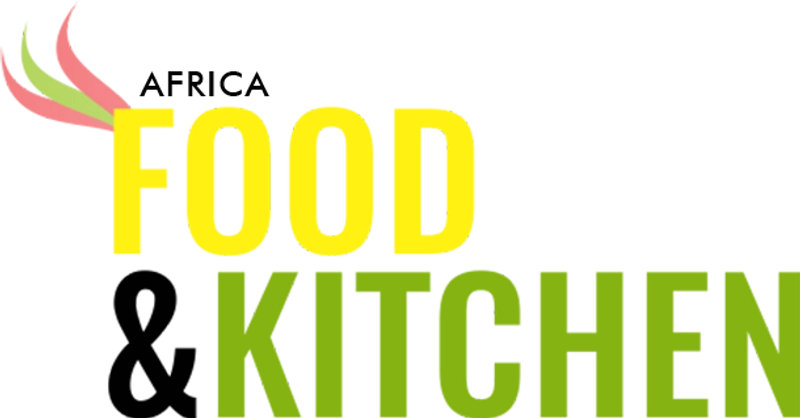
FOODAGRO - KENYA
肯尼亚食品与厨房(FOODAGRO)展示了来自超过26个国家的参展商推出的令人印象深刻的产品、设备和机械。该贸易展拥有充满活力的本地和国际公司阵容,是产品首次亮相、发现新买家和分销商、提高品牌知名度、促进客户关系以及紧跟行业趋势的最佳平台。FOOD & KITCHEN AFRICA是为食品、饮料、酒店、厨房设备和农业领域推出新产品和设备的主要场所,同时也吸引了新的客户、消费者和潜在合作伙伴。
肯尼亚人口约为5400万,国内生产总值(GDP)约为1090亿美元,严重依赖食品和饮料进口来满足国内需求和实现消费模式多样化。肯尼亚被定位为非洲的关键切入点,将很大一部分进口商品再出口到邻近地区。肯尼亚的食品和饮料的进口额约为165亿肯尼亚先令(KsH),相当于大约1.42亿美元。该行业的主要进口品包括玉米、未研磨的小麦和小麦粉、大米、糖、渔业产品、蔬菜、乳制品、食用油和脂肪、咖啡、茶